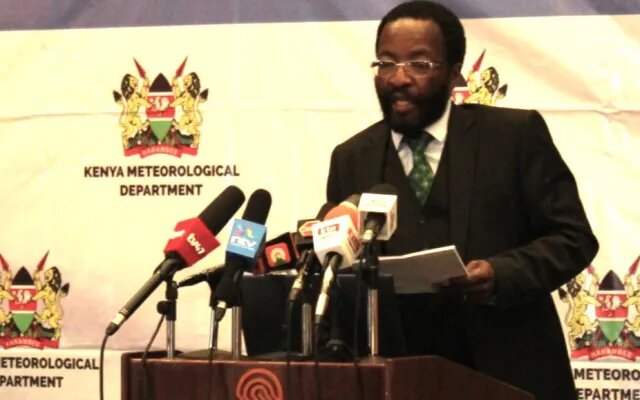Questions linger over KenyaSat-1 El Nino forecast
By Fred.Aminga, October 9, 2023With Kenya’s first operational earth observation satellite orbiting the earth after it was launched onboard a SpaceX rocket capturing our imagination, expectations were that predictions over El Nino would be child play.
“KenyaSat-1,” the satellite, was the result of years of dedication and hard work by a team including nine Kenyan engineers whose mission was to launch the utility and grant the country capacity to collect crucial real-time data to help foretell challenges, and aid in disaster mitigation by management and even combat food insecurity.
Thanks to climate change, challenges such as flood and drought, meant that data collected by KenyaSat-1 would be a game-changer in addressing most of these issues, and even help in planning ahead.
For Kenyans, moving away from a history that relied on foreign aid and expertise towards self-sufficiency in space technology, can only be explained by the jubilation that followed the launch that came after several failed attempts. However, since the satellite settled into orbit and began its mission, questions now abound, and most recently interrogations about the predictions about El Nino, and how accurately they align with the data collected with information being dished to Kenyans.
Notorious for floods that come with death and droughts, this time round, one would expect the accuracy of the satellite’s predictions would be crucial for disaster preparedness and mitigation efforts countrywide.
Yet, amidst the debate, questions linger about the project’s immediate impact. Isn’t data collected by KenyaSat-1 expected to be a key and defining tool in mitigating El Nino’s effects? Why are reactions from county governments and other state bodies suggesting a lack of deep data-driven preparedness?
Is there a disconnection in the nexus between data collected and industry interpretation?
To the extent that some citizens are now jokingly suggesting that traditional methods were still favoured over satellite data, where is KenyaSat-1? Granted, elders in Turkana might rely on their time-tested knowledge, but the broader citizenry seek answers about whether the satellite is still orbiting Earth and providing vital data to the motherland.
As tough questions about the project’s effectiveness emerge, the jury on whether KenyaSat-1 has dropped the ball is out there, particularly due to the loud silence emanating from the agency in charge of the project.
This is not to say that KenyaSat-1 has no potential benefits, and some may argue that space technology requires time to yield meaningful results, and that the satellite’s data collection capabilities extend beyond El Nino predictions. What is not clear is how data and information has trickled down to mwananchi and whether it has helped inform decisions yet. For example, the government says it has put in place adequate measures to mitigate effects of El Nino rains set to start mid-October and run until the end of December. Stakeholders led by Deputy President Rigathi Gachagua even gave an estimated Sh10 billion budget to manage the effects of El Nino. While suggestions that the El Nino rains projected this year will be stronger than those of 1997, the source of these warnings are not backed by lots of evidence.
Yet, such data is supposed to be a key enabler in mitigating the famed El Nino, and going by the knee jerk reactions by county governments and other arms of State, one would wonder whether the preparedness is informed by deep data. Maybe analysis has been shallow, or did we opt to use the more reliable traditional means of verification where we may be safe. Be that as it may, having spent millions in the satellite deal, citizens need a signal whether the Satellite is still orbiting the Earth and feeding the motherland with data.
Let Kenya’s journey into space technology not be in vain. It had begun with lots of ambition and most Kenyans are still held captive to anticipation towards what this remarkable journey will reveal. Let’s not let them down.
—The writer is the Business Editor, People Daily
